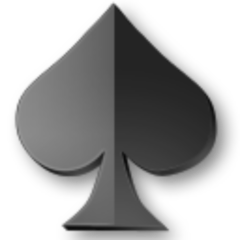
Blackjack is a card game where players compete to win against the dealer. The game requires strategy, knowledge of math and the ability to keep track of cards. The goal is to beat the dealer by getting a higher hand value than the dealer. To do so, the player must hit, stand, split, or double. Using mathematical analysis, it is possible to determine the optimal play for every situation. Unlike other casino games, blackjack is a game of skill and not chance.
To begin a hand, the blackjack dealer will pitch (deal) cards to each player in turn. The first card is face up, the second face down. The cards are dealt clockwise around the table. After the players look at their own cards, they decide whether to hit, stay, or split. The dealer then checks their own hand and if they have a blackjack, they win the hand. If the dealer doesn’t have a blackjack, they must hit on every subsequent turn until they do.
A player may choose to split pairs if the rules of the game permit it. This means that a pair of 2s can be split against a dealer’s 4, but not against a 10. However, splitting pairs can reduce the player’s chances of hitting a blackjack and may lead to a loss. The best way to increase the odds of winning is to follow basic strategy and never split 10s, 5’s or 4’s.
Another important factor is to understand the rules of blackjack. The game uses one to eight 52-card decks. Number cards (2-10) score their numerical values, face cards (Jack, Queen and King) are worth 10 points and the Ace can either be valued at 1 or 11. The game is played with two to seven players and one dealer.
In addition to the main wager, players can also make side bets. Insurance is a common side bet that pays out 2 to 1 if the dealer has an ace showing. There are many other kinds of side bets that can be made, such as betting on the dealer having a specific poker hand or on whether the dealer will bust.
To be a successful blackjack dealer, you should have excellent customer service skills. This will allow you to interact with the players and answer their questions. You should also be able to read quickly and speak clearly. In addition, it is important to be able to communicate with other casino employees, such as security, and other dealers.
If you’re interested in becoming a blackjack dealer, consider taking some high school or college courses that will prepare you for the job. These courses will teach you about dealing strategies and the rules of the game. You should also find a blackjack dealer training program in your area that offers hands-on experience. Once you’ve completed the training, you’ll be able to apply your new skills at the blackjack table.
